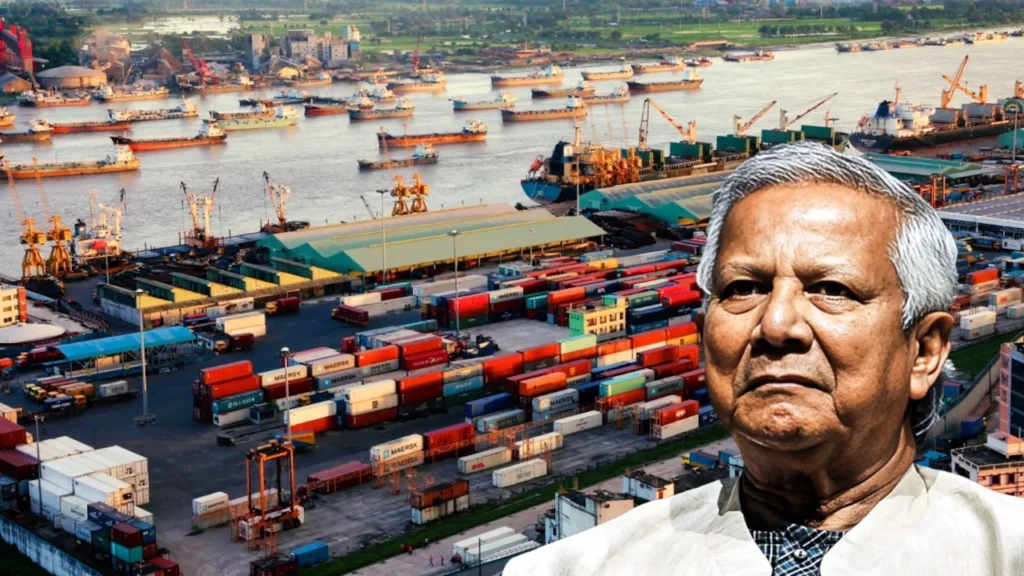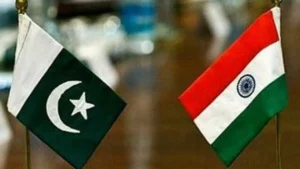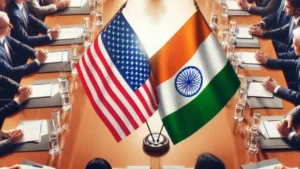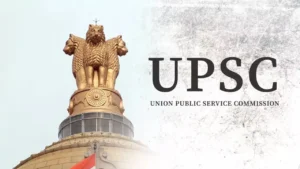India’s Revocation of Transshipment Facility with Bangladesh

In a significant development affecting regional trade dynamics, India has revoked the transshipment facility previously extended to Bangladesh. This decision, which has stirred conversations in both political and trade circles, is poised to impact not just bilateral relations but also the broader logistics and trade ecosystem in South Asia. The facility, which allowed Bangladesh to use Indian ports and territory to ship goods to third countries or its own enclaves, was seen as a symbol of growing regional cooperation. Its withdrawal signals shifting priorities and concerns that merit closer scrutiny.
What is a Transshipment Facility?
Transshipment refers to the movement of cargo from one country to another through an intermediate point—typically a neighboring country’s port or transport infrastructure. In the case of Bangladesh, India allowed the use of its ports—such as Kolkata and Haldia—and transit routes to facilitate goods being transported to destinations like Nepal and Bhutan, or even to and from Chattogram and Mongla ports.
For example, under this arrangement, goods from Bangladesh could be offloaded at the Indian port of Kolkata and then moved via road or rail to Nepal. Similarly, products for the northeastern Indian states could pass through Bangladesh, reducing travel time and cost significantly.
Why the Revocation?
There are multiple layers to India’s decision to revoke the facility. Key reasons include:
Security Concerns: Recent intelligence inputs have raised alarms about the misuse of transit routes for smuggling arms, narcotics, and contraband goods. While no official report has directly implicated Bangladesh, the possibility of misusing the corridor raised red flags.
Trade Imbalance and Reciprocity: Indian policymakers have expressed concerns over the lack of reciprocal benefits from Bangladesh. While India offered logistical advantages, there were few equivalent offerings in return, such as access to Bangladeshi ports or trade incentives.
Political Strain: Diplomatic relations between the two countries have faced strains recently, especially over issues like river water sharing (notably Teesta), illegal immigration concerns, and cross-border tensions. Revoking the transshipment facility may serve as a pressure tactic or bargaining chip in ongoing negotiations.
Impacts on Bangladesh
The revocation could significantly affect Bangladesh’s trade logistics, especially for shipments bound for Nepal, Bhutan, and parts of Northeast India.
Increased Cost and Transit Time: Without Indian territory to facilitate shorter and cheaper routes, Bangladesh would have to rely more on maritime routes or alternate arrangements, which are costlier and less time-efficient.
Disruption of Supply Chains: Industries dependent on quick logistics—such as garments, agriculture, and electronics—may face disruptions. For instance, garment exporters using Chattogram port to send products to Nepal will now face longer transit delays.
Diplomatic Blow: Bangladesh, which had viewed these facilities as evidence of deepening regional integration, may see this move as a diplomatic setback. It also casts uncertainty on the future of other collaborative projects like the BBIN (Bangladesh, Bhutan, India, Nepal) motor vehicle agreement.
Impact on India
While India retains strategic and economic leverage through this revocation, the move isn’t without consequences.
Strained Relations: Bangladesh is a key ally in South Asia. India risks pushing it closer to other regional powers like China, which is already investing heavily in Bangladeshi infrastructure.
Logistical Setbacks for Northeast India: Some Indian territories like Tripura and Mizoram benefited from faster routes through Bangladesh. These states may face renewed logistical challenges.
Regional and Global Reactions
International observers have noted the revocation with concern. It reflects a potential decline in regionalism and intra-South Asia cooperation, which already lags compared to other global regions. Additionally, it may prompt regional players to explore alternative coalitions and trade corridors, including China’s Belt and Road Initiative (BRI), which Bangladesh is a part of.
The Way Forward
Despite the revocation, both countries have expressed willingness to keep diplomatic channels open. Several experts suggest that the facility could be reinstated if:
Stronger border control and customs enforcement mechanisms are implemented.
There is a renegotiation for reciprocal transit rights for India through Bangladesh.
Confidence-building measures are taken on both sides to address political and security concerns.
Conclusion
India’s revocation of the transshipment facility with Bangladesh marks a turning point in regional logistics and diplomacy. While it underscores sovereign concerns, it also emphasizes the fragility of regional integration efforts. The future of such cooperation will depend on mutual trust, strategic alignment, and the shared vision of both countries to prioritize long-term regional stability and economic growth.
For More News Updates – https://khabarsearch.in/



